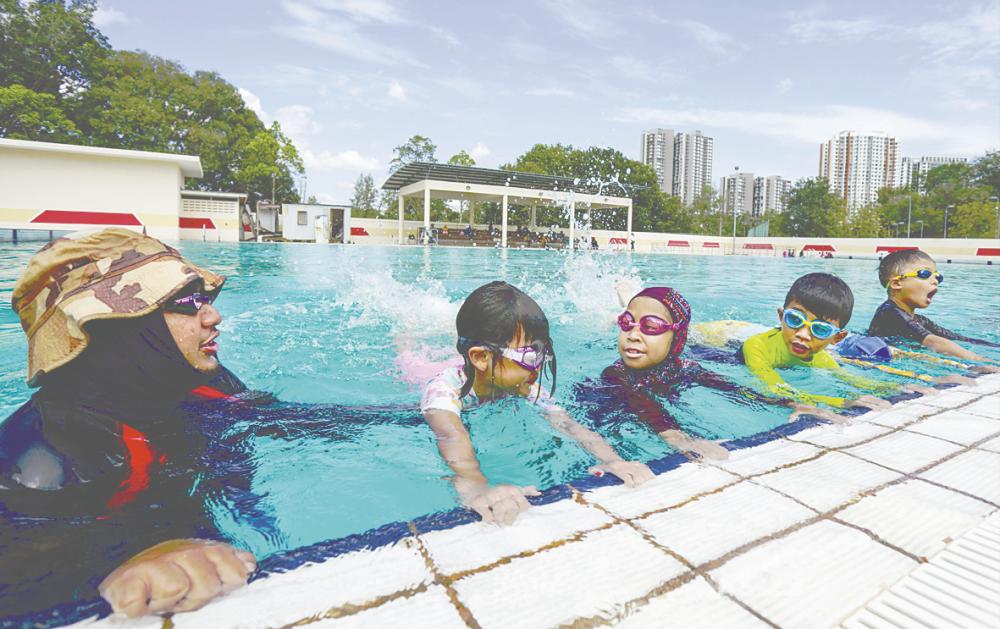PETALING JAYA: Drowning remains as one of the leading causes of death among children in Malaysia, said The Malaysian Paediatric Association executive committee member Dr Selva Kumar Sivapunniam.
Referring to the Statistics Department findings, he said drowning is No. 2 on the list of injury-related deaths after road crashes.
Thus, Selva Kumar emphasised the importance of early swimming lessons for children starting from age four.
“Swimming is more than just a leisure activity, it is a critical life-saving skill that everyone should learn.
“The American Academy of Paediatrics supports swimming lessons as an additional safeguard against drowning, recommending them for children as young as one year old.
“Certain regions in Malaysia are particularly prone to child drownings, especially during the monsoon season from November to March. The east coast states of Terengganu and Kelantan report the highest drowning rates.
“Rural and semi-urban areas with rivers and natural water bodies, along with urban homes with unfenced pools and unsupervised beaches, pose significant risks.”
Selva Kumar said to further address this public health concern, a comprehensive National Drowning Prevention Strategy should be developed.
“This approach could include public awareness campaigns, integrating swimming lessons into school curriculums, partnerships with NGOs and private sectors, and improved data collection to enable targeted interventions,” he said.
According to the department, between 2017 and 2021, there were 591 drowning fatalities among children aged 0-14, with an average of 10 children dying each month.
Boys comprised 74% of the fatalities, and drowning occurs three to four times more often involving boys. The highest fatalities are seen among boys aged 10 to 14.
Swimin12 Swim School CEO Darshini Balakrishnan also stresses the importance of swimming as a life skill.
“Swimming is not just a sport, it’s a vital skill that benefits children and adults alike. It builds gross motor skills, improves coordination, and enhances emotional resilience.”
Darshini, who is also chief inclusion programme lead for special needs said children with special needs, such as those with autism, ADHD, or other conditions, are particularly vulnerable.
“Drowning is a leading cause of death among children, and those on the spectrum face three times the risk compared with neurotypical children.
“Exposure to water, whether during family vacations or social outings, is common. Knowing how to stay afloat or survive in water is an essential skill,” Darshini said.
She added that children with special needs often have a natural attraction to water but may not recognise its dangers.
“Swimin12’s inclusion swim programme addresses this with a specialised curriculum tailored to children with autism, ADHD, spina bifida, cerebral palsy, Down Syndrome, blindness, deafness, mobility limitations, and more,” she said.
She also emphasised that it is never too late to learn to swim.
“Our oldest student is 86, and we frequently have clients over 50 joining us for therapy, maintaining a healthy lifestyle, or preparing for triathlons.”
The programme at Swimin12 begins lessons for children at around four years old, when they are more capable of understanding instructions and improving motor coordination.
For younger children, especially toddlers and babies, swimming lessons focus on survival skills and water safety.
“Swimming equips individuals with essential safety knowledge, builds confidence, and significantly reduces the likelihood of tragic accidents,” said Darshini.
Recognising the severity of the situation, the government has initiated measures to address the issue.
In early 2023, the Youth and Sports Ministry launched free swimming lessons for children aged three to 12 from low-income (B40) families.
This programme aims to instil water safety awareness and provide basic swimming skills. In collaboration with the Swimmers and Swimming Coaches Association Malaysia, the initiative targets 720 children across eight states, namely Kuala Lumpur, Selangor, Sabah, Sarawak, Kelantan, Kedah, Johor and Pahang.









